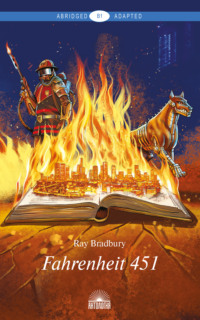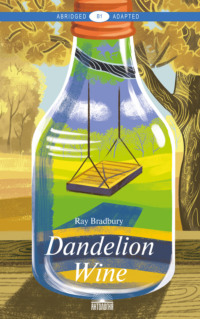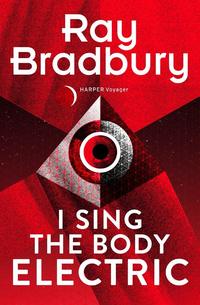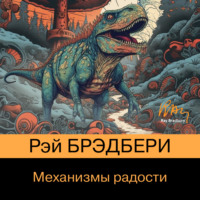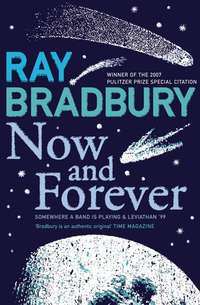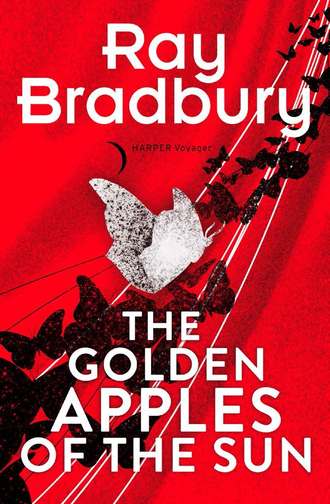
Полная версия
Golden Apples of the Sun

Golden Apples of the Sun
RAY BRADBURY


This novel is entirely a work of fiction. The names, characters and incidents portrayed in it are the work of the author’s imagination. Any resemblance to actual persons, living or dead, events or localities is entirely coincidental.
HarperVoyager An imprint of HarperCollins Publishers Ltd. 1 London Bridge Street London SE1 9GF
www.harpercollins.co.uk
Previously published by Avon Books, an imprint of HarperCollinsPublishers 1997
Copyright © Ray Bradbury 1990
Copyright notices for individual stories appear in Acknowledgements, which constitute an extension of this copyright page.
Ray Bradbury asserts the moral right to be identified as the author of this work
A catalogue copy of this book is available from the British Library
All rights reserved under International and Pan-American Copyright Conventions. By payment of the required fees, you have been granted the non-exclusive, non-transferable right to access and read the text of this e-book on screen. No part of this text may be reproduced, transmitted, down-loaded, decompiled, reverse engineered, or stored in or introduced into any information storage and retrieval system, in any form or by any means, whether electronic or mechanical, now known or hereinafter invented, without the express written permission of HarperCollins ebooks
HarperCollins Publishers has made every reasonable effort to ensure that any picture content and written content in this ebook has been included or removed in accordance with the contractual and technological constraints in operation at the time of publication
Ebook Edition © JUNE 2013 ISBN: 9780007541713
Version: 2017-08-17
Contents
Title Page
Copyright
Dedication
The Fog Horn
The April Witch
The Wilderness
The Fruit at the Bottom of the Bowl
The Flying Machine
The Murderer
The Golden Kite, The Silver Wind
I See You Never
Embroidery
The Big Black and White Game
The Great Wide World Over There
Powerhouse
En La Noche
Sun and Shadow
The Meadow
The Garbage Collector
The Great Fire
The Golden Apples of the Sun
The End of the Beginning
The Rocket
The Rocket Man
A Sound of Thunder
The Long Rain
The Exiles
Here There Be Tygers
The Strawberry Window
The Dragon
Frost and Fire
Uncle Einar
The Time Machine
The Sound of Summer Running
Keep Reading
Acknowledgements
About the Author
Also by the Author
About the Publisher
Dedication
And this one, with love, is For Neva.
daughter of Glinda
the Good Witch of the South
… And pluck till time and times are done
The silver apples of the moon,
The golden apples of the sun.
W. B. YEATS
The Fog Horn
Out there in the cold water, far from land, we waited every night for the coming of the fog, and it came, and we oiled the brass machinery and lit the fog light up in the stone tower. Feeling like two birds in the gray sky, McDunn and I sent the light touching out, red, then white, then red again, to eye the lonely ships. And if they did not see our light, then there was always our Voice, the great deep cry of our Fog Horn shuddering through the rags of mist to startle the gulls away like decks of scattered cards and make the waves turn high and foam.
“It’s a lonely life, but you’re used to it now, aren’t you?” asked McDunn.
“Yes,” I said. “You’re a good talker, thank the Lord.”
“Well, it’s your turn on land tomorrow,” he said, smiling,, “to dance the ladies and drink gin.”
“What do you think, McDunn, when I leave you out here alone?”
“On the mysteries of the sea.” McDunn lit his pipe. It was a quarter past seven of a cold November evening, the heat on, the light switching its tail in two hundred directions, the Fog Horn bumbling in the high throat of the tower. There wasn’t a town for a hundred miles down the coast, just a road which came lonely through dead country to the sea, with few cars on it, a stretch of two miles of cold water out to our rock, and rare few ships.
“The mysteries of the sea,” said McDunn thoughtfully. “You know, the ocean’s the biggest damned snowflake ever? It rolls and swells a thousand shapes and colors, no two alike. Strange. One night, years ago, I was here alone, when all of the fish of the sea surfaced out there. Something made them swim in and lie in the bay, sort of trembling and staring up at the tower light going red, white, red, white across them so I could see their funny eyes. I turned cold. They were like a big peacock’s tail, moving out there until midnight. Then, without so much as a sound, they slipped away, the million of them was gone. I kind of think maybe, in some sort of way, they came all those miles to worship. Strange. But think how the tower must look to them, standing seventy feet above the water, the God-light flashing out from it, and the tower declaring itself with a monster voice. They never came back, those fish, but don’t you think for a while they thought they were in the Presence?”
I shivered. I looked out at the long gray lawn of the sea stretching away into nothing and nowhere.
“Oh, the sea’s full.” McDunn puffed his pipe nervously, blinking. He had been nervous all day and hadn’t said why. “For all our engines and so-called submarines, it’ll be ten thousand centuries before we set foot on the real bottom of the sunken lands, in the fairy kingdoms there, and know real terror. Think of it, it’s still the year 300,000 Before Christ down under there. While we’ve paraded around with trumpets, lopping off each other’s countries and heads, they have been living beneath the sea twelve miles deep and cold in a time as old as the beard of a comet.”
“Yes, it’s an old world.”
“Come on. I got something special I been saving up to tell you.”
We ascended the eighty steps, talking and taking our time. At the top, McDunn switched off the room lights so there’d be no reflection in the plate glass. The great eye of the light was humming, turning easily in its oiled socket. The Fog Horn was blowing steadily, once every fifteen seconds.
“Sounds like an animal, don’t it?” McDunn nodded to himself. “A big lonely animal crying in the night. Sitting here on the edge of ten billion years calling out to the Deeps, I’m here, I’m here, I’m here. And the Deeps do answer, yes, they do. You been here now for three months, Johnny, so I better prepare you. About this time of year,” he said, studying the murk and fog, “something comes to visit the lighthouse.”
“The swarms of fish like you said?”
“No, this is something else. I’ve put off telling you because you might think I’m daft. But tonight’s the latest I can put it off, for if my calendar’s marked right from last year, tonight’s the night it comes. I won’t go into detail, you’ll have to see it yourself. Just sit down there. If you want, tomorrow you can pack your duffel and take the motorboat in to land and get your car parked there at the dinghy pier on the cape and drive on back to some little inland town and keep your lights burning nights, I won’t question or blame you. It’s happened three years now, and this is the only time anyone’s been here with me to verify it. You wait and watch.”
Half an hour passed with only a few whispers between us. When we grew tired waiting, McDunn began describing some of his ideas to me. He had some theories about the Fog Horn itself.
“One day many years ago a man walked along and stood in the sound of the ocean on a cold sunless shore and said, ‘We need a voice to call across the water, to warn ships; I’ll make one. I’ll make a voice like all of time and all of the fog that ever was; I’ll make a voice that is like an empty bed beside you all night long, and like an empty house when you open the door, and like trees in autumn with no leaves. A sound like the birds flying south, crying, and a sound like November wind and the sea on the hard, cold shore. I’ll make a sound that’s so alone that no one can miss it, that whoever hears it will weep in their souls, and hearths will seem warmer, and being inside will seem better to all who hear it in the distant towns. I’ll make me a sound and an apparatus and they’ll call it a Fog Horn and whoever hears it will know the sadness of eternity and the briefness of life.’ ”
The Fog Horn blew.
“I made up that story,” said McDunn quietly, “to try to explain why this thing keeps coming back to the lighthouse every year. The Fog Horn calls it, I think, and it conies.... ”
“But——” I said.
“Sssst!” said McDunn. “There!” He nodded out to the Deeps.
Something was swimming toward the lighthouse tower.
It was a cold night, as I have said; the high tower was cold, the light coming and going, and the Fog Horn calling and calling through the raveling mist. You couldn’t see far and you couldn’t see plain, but there was the deep sea moving on its way about the night earth, flat and quiet, the color of gray mud, and here were the two of us alone in the high tower, and there, far out at first, was a ripple, followed by a wave, a rising, a bubble, a bit of froth. And then, from the surface of the cold sea came a head, a large head, dark-colored, with immense eyes, and then a neck. And then—not a body—but more neck and more! The head rose a full forty feet above the water on a slender and beautiful dark neck. Only then did the body, like a little island of black coral and shells and crayfish, drip up from the subterranean. There was a flicker of tail. In all, from head to tip of tail, I estimated the monster at ninety or a hundred feet.
I don’t know what I said. I said something.
“Steady, boy, steady,” whispered McDunn.
“It’s impossible!” I said.
“No, Johnny, we’re impossible. It’s like it always was ten million years ago. It hasn’t changed. It’s us and the land that’ve changed, become impossible, Us!”
It swam slowly and with a great dark majesty out in the icy waters, far away. The fog came and went about it, momentarily erasing its shape. One of the monster eyes caught and held and flashed back our immense light, red, white, red, white, like a disk held high and sending a message in primeval code. It was as silent as the fog through which it swam.
“It’s a dinosaur of some sort!” I crouched down, holding to the stair rail.
“Yes, one of the tribe.”
“But they died out!”
“No, only hid away in the Deeps. Deep, deep down in the deepest Deeps. Isn’t that a word now, Johnny, a real word, it says so much: the Deeps. There’s all the coldness and darkness and deepness in a word like that.”
“What’ll we do?”
“Do? We got our job, we can’t leave. Besides, we’re safer here than in any boat trying to get to land. That thing’s as big as a destroyer and almost as swift.”
“But here, why does it come here?”
The next moment I had my answer.
The Fog Horn blew.
And the monster answered.
A cry came across a million years of water and mist. A cry so anguished and alone that it shuddered in my head and my body. The monster cried out at the tower. The Fog Horn blew. The monster roared again. The Fog Horn blew. The monster opened its great toothed mouth and the sound that came from it was the sound of the Fog Horn itself. Lonely and vast and far away. The sound of isolation, a viewless sea, a cold night, apartness. That was the sound.
“Now,” whispered McDunn, “do you know why it comes here?”
I nodded.
“All year long, Johnny, that poor monster there lying far out, a thousand miles at sea, and twenty miles deep maybe, biding its time, perhaps it’s a million years old, this one creature. Think of it, waiting a million years; could you wait that long? Maybe it’s the last of its kind. I sort of think that’s true. Anyway, here come men on land and build this lighthouse, five years ago. And set up their Fog Horn and sound it and sound it out toward the place where you bury yourself in sleep and sea memories of a world where there were thousands like yourself, but now you’re alone, all alone in a world not made for you, a world where you have to hide.
“But the sound of the Fog Horn comes and goes, comes and goes, and you stir from the muddy bottom of the Deeps, and your eyes open like the lenses of two-foot cameras and you move, slow, slow, for you have the ocean sea on your shoulders, heavy. But that Fog Horn comes through a thousand miles of water, faint and familiar, and the furnace in your belly stokes up, and you begin to rise, slow, slow. You feed yourself on great slakes of cod and minnow, on rivers of jellyfish, and you rise slow through the autumn months, through September when the fogs started, through October with more fog and the horn still calling you on, and then, late in November, after pressurizing yourself day by day, a few feet higher every hour, you are near the surface and still alive. You’ve got to go slow; if you surfaced all at once you’d explode. So it takes you all of three months to surface, and then a number of days to swim through the cold waters to the lighthouse. And there you are, out there, in the night, Johnny, the biggest damn monster in creation. And here’s the lighthouse calling to you, with a long neck like your neck sticking way up out of the water, and a body like your body, and, most important of all, a voice like your voice. Do you understand now, Johnny, do you understand?”
The Fog Horn blew.
The monster answered.
I saw it all, I knew it all—the million years of waiting alone, for someone to come back who never came back. The million years of isolation at the bottom of the sea, the insanity of time there, while the skies cleared of reptile-birds, the swamps dried on the continental lands, the sloths and saber-tooths had their day and sank in tar pits, and men ran like white ants upon the hills.
The Fog Horn blew.
“Last year,” said McDunn, “that creature swam round and round, round and round, all night. Not coming too near, puzzled, I’d say. Afraid, maybe. And a bit angry after coming all this way. But the next day, unexpectedly, the fog lifted, the sun came out fresh, the sky was as blue as a painting. And the monster swam off away from the heat and the silence and didn’t come back. I suppose it’s been brooding on it for a year now, thinking it over from every which way.”
The monster was only a hundred yards off now, it and the Fog Horn crying at each other. As the lights hit them, the monster’s eyes were fire and ice, fire and ice.
“That’s life for you,” said McDunn. “Someone always waiting for someone who never comes home. Always someone loving some thing more than that thing loves them. And after a while you want to destroy whatever that thing is, so it can’t hurt you no more.”
The monster was rushing at the lighthouse.
The Fog Horn blew.
“Let’s see what happens,” said McDunn.
He switched the Fog Horn off.
The ensuing minute of silence was so intense that we could hear our hearts pounding in the glassed area of the tower, could hear the slow greased turn of the light.
The monster stopped and froze. Its great lantern eyes blinked. Its mouth gaped. It gave a sort of rumble, like a volcano. It twitched its head this way and that, as if to seek the sounds now dwindled off into the fog. It peered at the lighthouse. It rumbled again. Then its eyes caught fire. It reared up, threshed the water, and rushed at the tower, its eyes filled with angry torment.
“McDunn!” I cried. “Switch on the horn!”
McDunn fumbled with the switch. But even as he flicked it on, the monster was rearing up. I had a glimpse of its gigantic paws, fishskin glittering in webs between the finger-like projections, clawing at the tower. The huge eye on the right side of its anguished head glittered before me like a caldron into which I might drop, screaming. The tower shook. The Fog Horn cried; the monster cried. It seized the tower and gnashed at the glass, which shattered in upon us.
McDunn seized my arm. “Downstairs!”
The tower rocked, trembled, and started to give. The Fog Horn and the monster roared. We stumbled and half fell down the stairs. “Quick!”
We reached the bottom as the tower buckled down toward us. We ducked under the stairs into the small stone cellar. There were a thousand concussions as the rocks rained down; the Fog Horn stopped abruptly. The monster crashed upon the tower. The tower fell. We knelt together, McDunn and I, holding tight, while our world exploded.
Then it was over, and there was nothing but darkness and the wash of the sea on the raw stones.
That and the other sound.
“Listen,” said McDunn quietly. “Listen.”
We waited a moment. And then I began to hear it. First a great vacuumed sucking of air, and then the lament, the bewilderment, the loneliness of the great monster, folded over and upon us, above us, so that the sickening reek of its body filled the air, a stone’s thickness away from our cellar. The monster gasped and cried. The tower was gone. The light was gone. The thing that had called to it a million years was gone. And the monster was opening its mouth and sending out great sounds. The sounds of a Fog Horn, again and again. And ships far at sea, not finding the light, not seeing anything, but passing and hearing late that night, must’ve thought: There it is, the lonely sound, the Lonesome Bay horn. All’s well. We’ve rounded the cape.
And so it went for the rest of that night.
The sun was hot and yellow the next afternoon when the rescuers came out to dig us from our stoned-under cellar.
“It fell apart, is all,” said Mr. McDunn gravely. “We had a few bad knocks from the waves and it just crumbled.” He pinched my arm.
There was nothing to see. The ocean was calm, the sky blue. The only thing was a great algaic stink from the green matter that covered the fallen tower stones and the shore rocks. Flies buzzed about. The ocean washed empty on the shore.
The next year they built a new lighthouse, but by that time I had a job in the little town and a wife and a good small warm house that glowed yellow on autumn nights, the doors locked, the chimney puffing smoke. As for McDunn, he was master of the new lighthouse, built to his own specifications, out of steel-reinforced concrete. “Just in case,” he said.
The new lighthouse was ready in November. I drove down alone one evening late and parked my car and looked across the gray waters and listened to the new horn sounding, once, twice, three, four times a minute far out there, by itself.
The monster?
It never came back.
“It’s gone away,” said McDunn. “It’s gone back to the Deeps. It’s learned you can’t love anything too much in this world. It’s gone into the deepest Deeps to wait another million years. Ah, the poor thing! Waiting out there, and waiting out there, while man comes and goes on this pitiful little planet. Waiting and waiting.”
I sat in my car, listening. I couldn’t see the lighthouse or the light standing out in Lonesome Bay. I could only hear the Horn, the Horn, the Horn. It sounded like the monster calling.
I sat there wishing there was something I could say.
The April Witch
Into the air, over the valleys, under the stars, above a river, a pond, a road, flew Cecy. Invisible as new spring winds, fresh as the breath of clover rising from twilight fields, she flew. She soared in doves as soft as white ermine, stopped in trees and lived in blossoms, showering away in petals when the breeze blew. She perched in a lime-green frog, cool as mint by a shining pool. She trotted in a brambly dog and barked to hear echoes from the sides of distant barns. She lived in new April grasses, in sweet clear liquids rising from the musky earth.
It’s spring, thought Cecy. I’ll be in every living thing in the world tonight.
Now she inhabited neat crickets on the tar-pool roads, now prickled in dew on an iron gate. Hers was an adaptably quick mind flowing unseen upon Illinois winds on this one evening of her life when she was just seventeen.
“I want to be in love,” she said.
She had said it at supper. And her parents had widened their eyes and stiffened back in their chairs. “Patience,” had been their advice. “Remember, you’re remarkable. Our whole family is odd and remarkable. We can’t mix or marry with ordinary folk. We’d lose our magical powers if we did. You wouldn’t want to lose your ability to ‘travel’ by magic, would you? Then be careful. Be careful!”
But in her high bedroom, Cecy had touched perfume to her throat and stretched out, trembling and apprehensive, on her four-poster, as a moon the color of milk rose over Illinois country, turning rivers to cream and roads to platinum.
“Yes,” she sighed. “I’m one of an odd family. We sleep days and fly nights like black kites on the wind. If we want, we can sleep in moles through the winter, in the warm earth. I can live in anything at all—a pebble, a crocus, or a praying mantis. I can leave my plain, bony body behind and send my mind far out for adventure. Now!”
The wind whipped her away over fields and meadows.
She saw the warm spring lights of cottages and farms glowing with twilight colors.
If I can’t be in love, myself, because I’m plain and odd, then I’ll be in love through someone else, she thought.
Outside a farmhouse in the spring night a dark-haired girl, no more than nineteen, drew up water from a deep stone well. She was singing.
Cecy fell—a green leaf—into the well. She lay in the tender moss of the well, gazing up through dark coolness. Now she quickened in a fluttering, invisible amoeba. Now in a water droplet! At last, within a cold cup, she felt herself lifted to the girl’s warm lips. There was a soft night sound of drinking.
Cecy looked out from the girl’s eyes.
She entered into the dark head and gazed from the shining eyes at the hands pulling the rough rope. She listened through the shell ears to this girl’s world. She smelled a particular universe through these delicate nostrils, felt this special heart beating, beating. Felt this strange tongue move with singing.
Does she know I’m here? thought Cecy.
The girl gasped. She stared into the night meadows.
“Who’s there?”
No answer.
“Only the wind,” whispered Cecy.
“Only the wind.” The girl laughed at herself, but shivered.
It was a good body, this girl’s body. It held bones of finest slender ivory hidden and roundly fleshed. This brain was like a pink tea rose, hung in darkness, and there was cider-wine in this mouth. The lips lay firm on the white, white teeth and the brows arched neatly at the world, and the hair blew soft and fine on her milky neck. The pores knit small and close. The nose tilted at the moon and the cheeks glowed like small fires. The body drifted with feather-balances from one motion to another and seemed always singing to itself. Being in this body, this head, was like basking in a hearth fire, living in the purr of a sleeping cat, stirring in warm creek waters that flowed by night to the sea.




